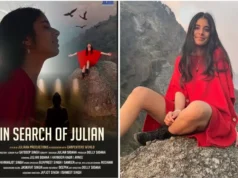An Indian father tucks his darling daughter into bed in their climate-controlled mobile pod house on Russia’s far northern Taymyr Peninsula on a July evening in 2035. “What a fantastic day you’ve had, papa!” Maya lets out a sigh of relief. “I’ve been waiting for us to turn on that new solar-powered water desalination facility for a long time.” And how great is it that the water is immediately sent to our aquaponic farm? “Can we have those delectable strawberries and grapes for breakfast the next day?”
“Sure right!” says the speaker. Her father is overjoyed. “Now we have complete freedom to develop anything we want, whenever we want.” He takes a breather. “But not where we desire,” says the narrator. She’s old enough to comprehend history. “You know, we’re quite fortunate to be here. All of the previous decades of harmful emissions and pollution began to catch up with us around 30 years ago. Since then, billions of people have perished as a result of droughts, forest fires, increasing sea levels, and floods, and it no longer made sense for most of us to stay at home.”
For those alive in 2035, the narrative has a happy conclusion. However, this film has yet to be made in Hollywood. Dystopian films, on the other hand, have taken over the silver screen.
Children of Men, a 2006 sci-fi thriller, depicts a dismal future in 2027 in which mankind has been largely wiped out by an unknown catastrophe, and refugees escaping anarchy who arrive in England are either detained or executed. In retrospect, the picture looks hauntingly predictive on the face of a worldwide fertility crisis, the COVID-19 epidemic, and refugees being fired at in their rafts in the Mediterranean.
The Hunger Games and Mad Max are two additional movies that depict a society so chaotic that one wonders if it would have been better to be wiped out by whatever disaster their narratives revolve around. The epidemic is ultimately brought under control in Contagion, at least.
In reality, Hollywood has it pretty easy. Executives, producers, authors, and directors decide on a single catastrophe that will strike humanity. We do not get to choose our crisis in the actual world. COVID-19 and climate change are both wreaking havoc on our lives, with the former imprisoning us and the latter forcing us to leave.










